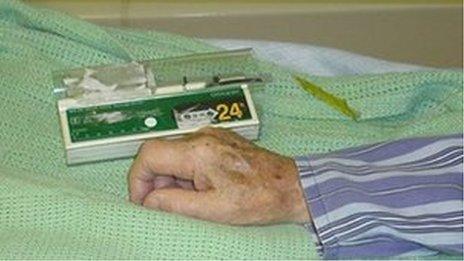NICE urges doctors to treat dying patients as individuals
- Published
The new guideline emphasises more support for medical staff as Adam Brimelow reports
End-of-life care in England must be tailored to the needs of dying patients rather than a "tick-box approach", the health watchdog NICE says.
Patients must be treated with respect and compassion, it said, and doctors should avoid making "snap decisions" about whether someone was dying.
The guidance is designed to address misuse of the previous system, the Liverpool Care Pathway.
Charities welcomed the new guidelines - but warned more investment was needed.
The Liverpool Care Pathway (LCP) was introduced in the late 1990s, in an attempt to ensure people had a dignified and comfortable death.
Among other things, it involved checklists prompting staff to consider whether invasive procedures, drips and drugs should be withdrawn from people in the last stages of life.
But it was phased out last year after a government-commissioned review revealed serious concerns that it was being used in the wrong way, leading to a "tick-box" culture.
'Individualised approach'
The new wide-ranging guidelines - the first national guidelines to be introduced in England - cover many of the same key principles as the LCP.
While NICE acknowledged the majority of people are given good care, the watchdog called for a stronger focus on individual plans for each patient, saying their wishes and those of their family must be central.

What is the Liverpool Care Pathway?
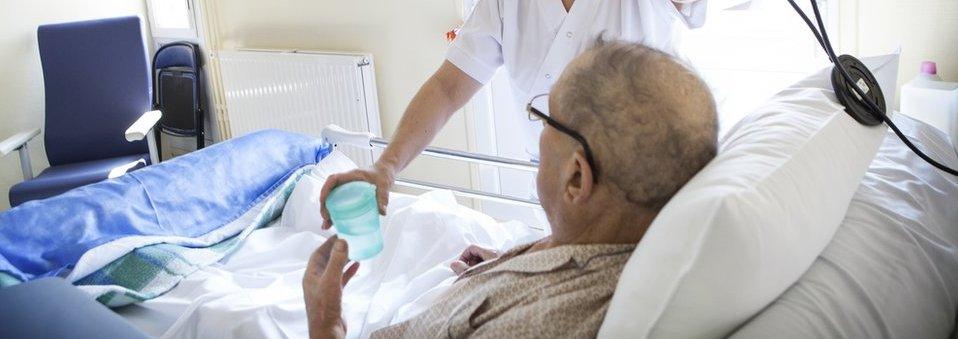
Developed in the late 1990s at the Royal Liverpool University Hospital
It was intended to provide uniform, high-quality, dignified care for dying patients - whether in hospital, at home, in a care home or in a hospice
Patients were regularly reviewed to ascertain whether medication or invasive procedures should be stopped - and whether fluids should be withdrawn once they have ceased to be able to eat and drink
However, relatives complained people were put on the pathway without their knowledge, and that deaths were hastened in people who were not dying imminently
Reports suggested that incorrect use of the LCP left some patients without food and water

Prof Sam Ahmedzai said this needed to be underpinned by a change in attitude to ensure staff had more respect for care of the dying.
"You have to look at each individual person and respect them as an individual person, ask them about their wishes," he told BBC Radio 4's Today programme.
"Some people may want interventions, may want tests to carry on. Others may want to stop all those things. Some people may want fluids, others may not want fluids. So respecting the individual and not having a one-size-fits-all approach."
The expert panel acknowledged that recognising whether someone is in the last few days of life can be difficult.
Hydration
Staff should seek guidance from senior colleagues if there were uncertainties and avoid snap decisions, the panel said.
The guidelines emphasise that patients must be monitored for improvements on a daily basis. Staff are offered information on how to spot signs that death is imminent.
The document also looked closely at hydration for people in their last few days of life.
Previous reports suggested that when the LCP was used incorrectly some patients were left so thirsty they tried to suck water from sponges used to moisten their mouths.
The new guidance says anyone who is capable of drinking should be encouraged to do so if it is safe and family and friends should be able to help.
And if a patient cannot drink giving fluids in other ways - such as under the skin - should be considered.

'A lot of fear'
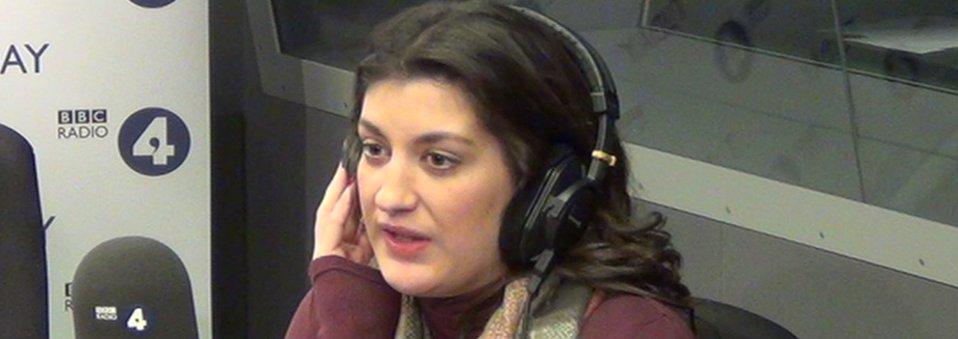
Kayleigh Hollobone said her mother - who died of an inoperable brain tumour - was put on the Liverpool Care Pathway and denied fluids without her family's knowledge.
"It was only when we saw 'LCP' on her notes that we realised," she told the Today programme.
The decision added "so much confusion and quite a lot of fear for us before she was able to get her mother taken off the pathway, she said.
"To have to sort this information out ourselves and request it and ask for an explanation was just quite scary.
"We had absolutely no idea what was going on, why fluids were suddenly being withdrawn, why her request for some moisture was just being denied or ignored."
Her mother survived for another three months, giving her time to say her goodbyes and laugh and joke again, Kayleigh told the BBC in 2013.

'Greater investment'
But despite these recommendations, experts say there is a lack of evidence about whether giving or withholding fluids can prolong or shorten life in these circumstances.
Lord Howard, chairman of Hospice UK, welcomed the guidelines but said there would be real challenges putting them into practice.
"There can never be 'a tick-list approach' towards caring for the dying and this guidance must be underpinned by greater investment in training and education for all staff involved in end-of-life care.
"This is crucial if we are to avoid the failings of how the Liverpool Care Pathway was implemented," he added.
Meanwhile Claire Henry, chief executive of the National Council for Palliative Care said: "At its best end of life care in the UK is world class, but there is huge inconsistency and too many dying people are being failed at their time of greatest need.
"That's why these new NICE guidelines are so important and so welcome."
- Published29 July 2015
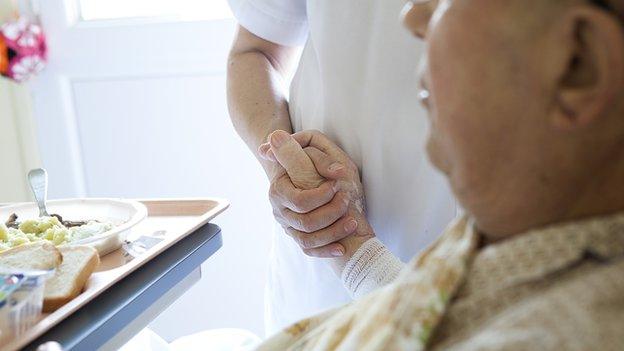
- Published6 October 2015
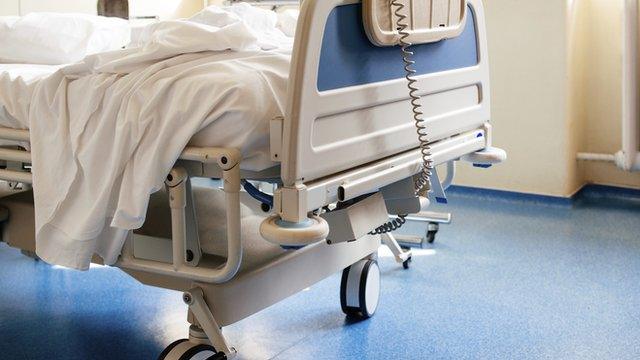
- Published13 July 2013
